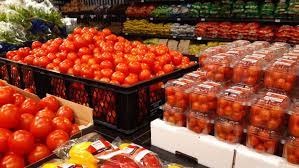In its latest report, the World Bank has identified Ghana, Egypt, Rwanda, and Sierra Leone among the 10 nations grappling with the most severe food inflation rates globally. The official rankings, available on the institution’s website, underscore Lebanon as the country facing the highest food inflation rate worldwide.
The report, examining Consumer Price Index (CPI) data from May to August 2023, outlines additional nations with alarming inflation rates, including Egypt, Sierra Leone, Turkey, Rwanda, Ghana, Guinea, Pakistan, Suriname, and Malawi. Notably absent from this list is Nigeria, despite the nation experiencing a substantial increase in inflation rates since the beginning of the year. For instance, it was recently reported how Nigeria’s food inflation rate increased to 31.52 per cent in October 2023, from 30.64 per cent in September 2023.
The World Bank’s assessment reveals a concerning trend of heightened food inflation across various regions, encompassing Africa, North America, Latin America, South Asia, Europe, and Central Asia. The Consumer Price Index data for the mentioned period indicates widespread inflation, with over 5 per cent in 52.6 per cent of low-income countries, 86.4 per cent of lower-middle-income countries, and 64.0 per cent of upper-middle-income countries. Many of these nations are grappling with double-digit inflation, with a substantial 69.6 per cent of high-income countries also experiencing elevated food price inflation.
The most significantly impacted regions, as highlighted by the report, include Africa, North America, Latin America, South Asia, Europe, and Central Asia. The global surge in food inflation underscores the pressing need for comprehensive measures to address economic challenges and ensure food security in these affected nations.



